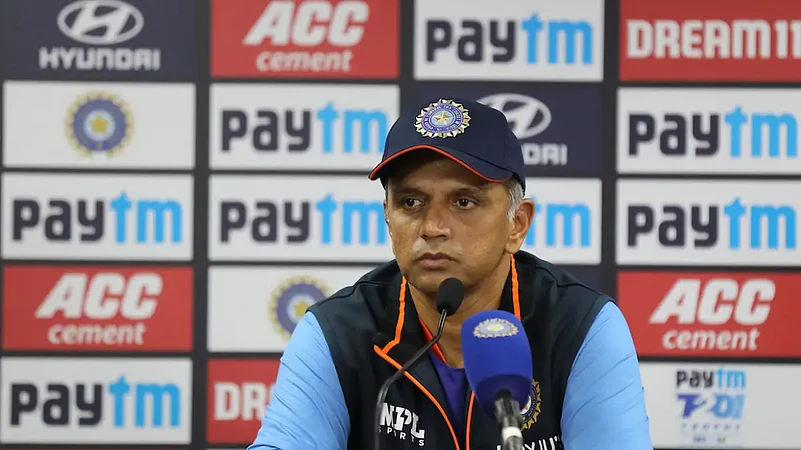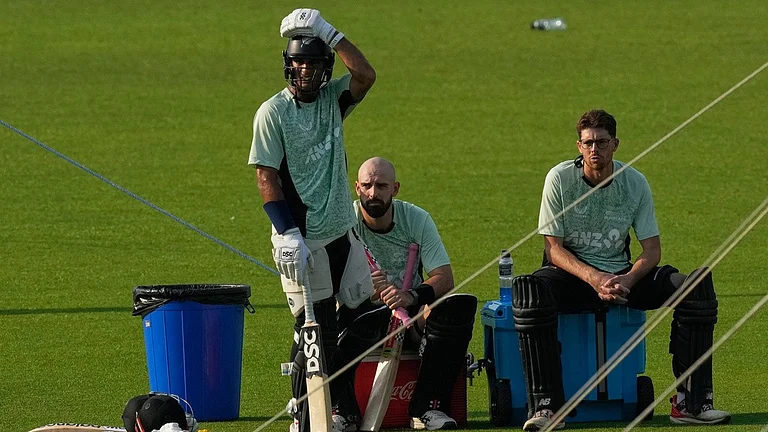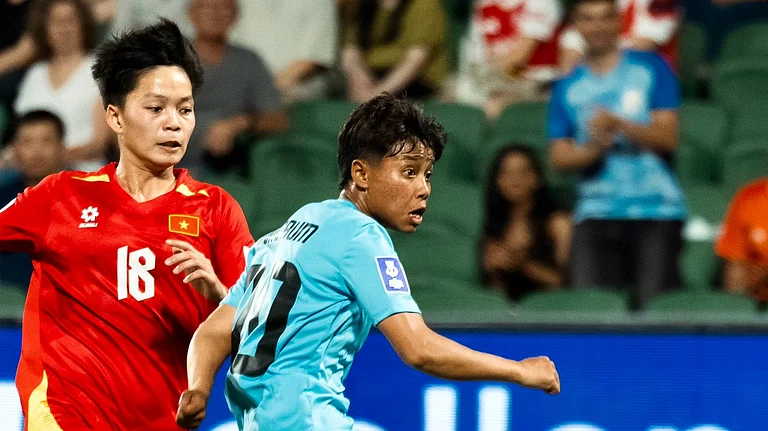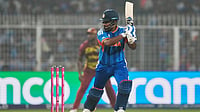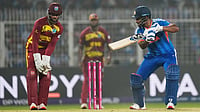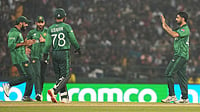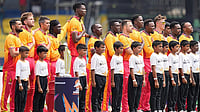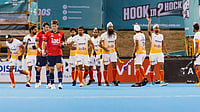Indian cricket's history has shown us that great players don't always become great coaches. Ask Kapil Dev, Anil Kumble or even Greg Chappell for that matter. All these illustrious player-turned-coaches have painfully learnt that it is more about fitment than credentials. At the highest level, understanding what the players want and aligning with their style of functioning generally proves to be more important than telling them what to do. Many accomplished former players don't seem to have had this insight or self-awareness. But Rahul Dravid certainly isn't one of them. (Full Coverage | Schedule | Cricket News)
In the past, Dravid has repeatedly declined offers to become head coach of the Indian men's cricket team. He was in line for the job in 2017 after Kumble resigned from the high-profile role owing to his "untenable" relationship with the then-skipper Virat Kohli. Dravid had turned the opportunity down, saying he wanted to groom young cricketers and spend time with his kids.
Dravid was again approached in October 2021 towards the end of Ravi Shastri's contract, but he is said to have politely refused again, citing his desire to focus on junior cricket. The former India captain was mentoring the Under-19 cricket team and heading the National Cricket Academy in Bengaluru at the time.
It took persuasion from his long-time teammate Sourav Ganguly (then BCCI president) and BCCI secretary Jay Shah for Dravid to reluctantly accept the position. He agreed to take on the mantle till the 2023 ODI World Cup. The marquee quadrennial event is now nearly upon us, but opinion on Dravid's performance so far is divided.
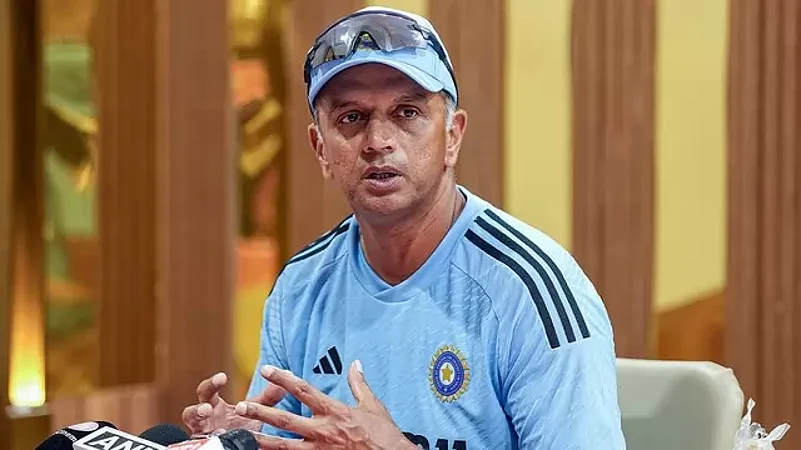
Many would argue that Dravid has had one of the strongest Indian teams in history at his disposal. The current group comprises an embarrassment of riches in the batting department, a fearsome pace bowling attack featuring Jasprit Bumrah, Mohammed Shami and Mohammed Siraj, and a variety of wrist and finger spinners who have delivered time and time again. Simply put, the abundance of resources is undisputed. However, the results have not always corresponded to the resources.
Under Dravid, India have contested two ICC events — the 2022 T20 World Cup and World Test Championship (WTC) final — and could not bring the trophy home in either of them. While England thrashed India by 10 wickets in the semi-final of the T20 World Cup, Australia proved too good for India in the summit clash of the Test Championship, handing the Men In Blue a chastening 209-run defeat.
Dravid's tenure began on a bright note, though, as the Indian team defeated New Zealand 3-0 in a T20I series that was the ex-India skipper's first series as full-time head coach. But the legendary batter has not managed to deliver on that promise consistently.
Questions have also been raised about Dravid's tactical decisions regarding selection, including the dropping and then recall of Cheteshwar Pujara and Ajinkya Rahane in Tests, and India's underwhelming performance in overseas Test series. When asked in person, Dravid hasn't always answered these questions with the straight bat that he used to employ against opposition bowling attacks.
A case in point: the immediate aftermath of the WTC final loss. On air for Star Sports, Ganguly had asked Dravid about the concerning chinks in the Indian top-order's armour while playing in SENA (South Africa, England, New Zealand and Australia) countries.
"Rahul, you have been a legend but why do you think some of our top-order batters (Kohli, Pujara, Rohit Sharma) have struggled outside the sub-continent most of the times?" Ganguly posed.
"We have experienced players in top five and they have set high standards. These are the boys who would be called legends in future. They have won two series in Australia and won Test matches in England. We are doing the best we can," was Dravid's obfuscatory response.
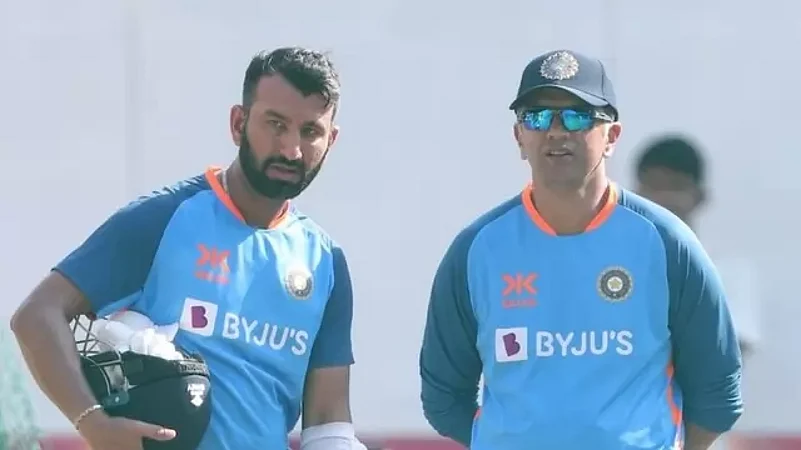
The WTC final loss marked more than 10 years of the Indian men's team not winning any global ICC event, and the quest will continue with the 50-over World Cup. The fact that the marquee tournament is being played at home this time means that expectations will be sky-high, and any shortfall could have massive ramifications.
There is plenty of precedence of coaches being given the boot in the wake of their wards’ below-par showing at a major event. Dravid saw that first-hand when Chappell was compelled to resign after Team India's horror show in the 2007 ODI World Cup, with the former being the side's captain.
As it turns out, 16 years later, the proverbial shoe is now on the other foot and Dravid might not want his coaching legacy to be tarnished, just like it happened with his captaincy where that one poor tournament veritably negated all the good results the team had delivered before that.
The former stylish right-hander though maintains in public that he is not big on legacies. Before the Indian team left for the Asia Cup in Sri Lanka, Dravid was asked if he felt the upcoming World Cup would define his stint as a coach.
The 50-year-old replied: "I am not into legacies. It is exciting to play a World Cup at home. There is going to be a certain amount of pressure associated with it, but that is something we all expect. As a coach, I am looking forward to it. I just stay in the present, worry about the job I have to do now and not worry about the future."
The response may come across as philosophical or evasive even, but what followed this time was a dominating performance from his team, winning the Asia Cup in Colombo last month on the back of a searing performance by Siraj in the final.
After all the talk about India's scanty trophy collection in the last few years, the Asia Cup triumph — which led to the team becoming number 1 in the ICC ODI rankings — would have no doubt given the side some confidence and momentum in the run-up to the all-important World Cup. The team followed that up with a 2-1 series victory over Australia at home, and looks like a very tough one to beat when on song.
Despite Dravid's aforementioned lukewarm results as the coach of the senior team so far, his experience with the younger lot during his Under-19 tenure has given him an undeniable advantage. Players like Ishan Kishan, Rishabh Pant and Washington Sundar have grown under his watch, and his understanding of the modern game's demands and altered dynamics is also strong due to his time mentoring Indian Premier League franchises Delhi Daredevils and Rajasthan Royals.
All said and done, in top-flight cricket, sometimes it all boils down to one or two moments of fortune. What happens in those moments can shape entire careers. In Dravid's own playing days, for instance, despite his superlative work ethic and unwavering commitment to the team's cause, when it came to being at the forefront during the pivotal moments, luck never really went his way.
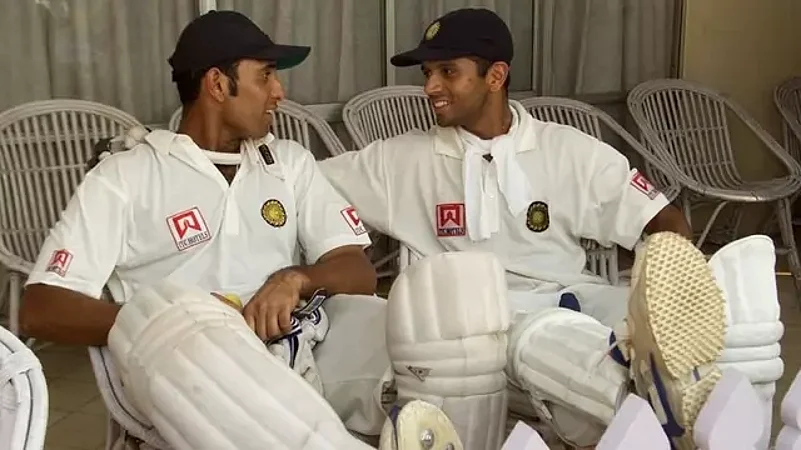
Be it during his Test debut as a 23-year-old at Lord's in 1996, when fellow debutant Ganguly scored the ton and Dravid missed out by just five runs, or in Taunton during the 1999 World Cup, when 'The Wall' and Ganguly combined for a record 318-run partnership but the southpaw's 183 again overshadowed Dravid's knock. Even at the historic 2001 Eden Gardens Test against Australia, Dravid’s 180 was a thing of beauty. It’s just that his partner VVS Laxman's 281 was even more breathtaking.
When it comes to Dravid at the helm, India successfully chased down targets for a record 17 ODIs between 2006 and 2007, but it was unfortunately followed by the team’s most disappointing World Cup performance since 1979.
The time is ripe for Dravid to redeem himself, and for that, he will count on Rohit Sharma & Co. to fire on all cylinders.


